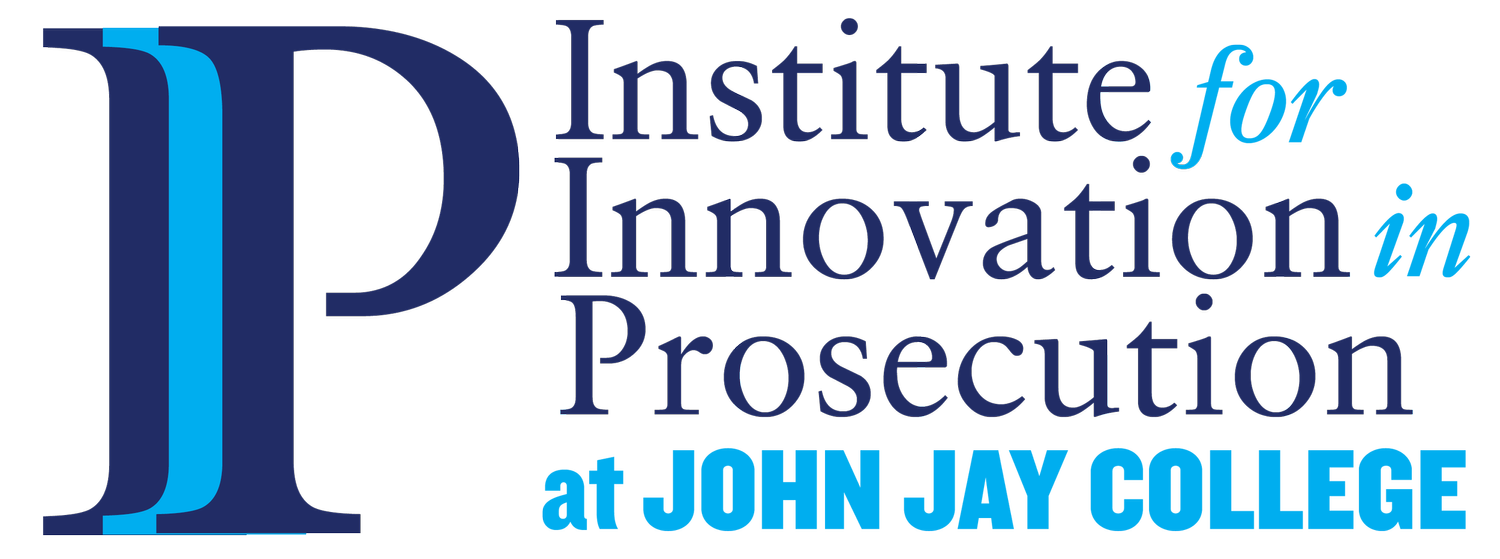Discretion in the Legal System
Symposium on Discretion in the Legal System
In October, the IIP co-sponsored a symposium on discretion in the legal system at Berkeley Law School. The IIP co-sponsored the symposium with the Berkeley Criminal Law & Justice Center and the ABA Taskforce on Prosecutorial Independence. The symposium explored the role of discretion in charging decisions, sentencing outcomes, decisions in cases involving immigration consequences, as well as the recent political weaponization of prosecutorial discretion.
Watch Our Full Panels
-
Andrea Roth (moderator), Professor of Law and Barry Tarlow Chancellor’s Chair in
Criminal Justice, University of California, Berkeley School of Law
Aramis Ayala, Former State Attorney, Ninth Judicial Circuit of Florida
John Choi, County Attorney, Ramsey County, MN
Melinda Haag, Former United States Attorney for the Northern District of California
Alexandra Natapoff, Lee S. Kreindler Professor of Law, Harvard Law School
This panel examined the role that prosecutorial discretion plays in charging decisions. Prosecutors have the power to decide whether to charge, what to charge, and how to charge cases. Where does that authority come from? Are there limits to prosecutorial charging discretion? How do broad charging policies–such as blanket policies to decline to charge certain kinds of cases–fit into prosecutorial discretion? The panel discussed how separation of powers considerations factor into charging decisions and examined how the power of prosecutorial discretion checks police power.
This session also explored prosecutorial considerations in charging decisions–for example how prosecutors should consider resource constraints, community input, and public safety in charging approaches.
Watch the full panel here.
-
Ellen S. Podgor (moderator), Gary R. Trombley Family White-Collar Crime Research Professor, Professor of Law, Stetson University College of Law
Hillary Blout, Founder and Executive Director, For The People
Susan Champion, Deputy Director, Three Strikes Project, Stanford Law School
Hon. John Gleeson, Former District Judge, United States District Court, Eastern District of New York and Partner, Debevoise and Plimpton
Pamela R. Metzger, Executive Director, Deason Criminal Justice Reform Center and Professor of Law, Southern Methodist University Dedman School of Law
This session examined the role of judicial and prosecutorial discretion in sentencing decisions in both federal and state courts. This session identified challenges in the ways that discretion plays out in sentencing decisions and explored what laws or changes are needed to ensure fairness and justice in sentencing–including needed reforms to the federal sentencing guidelines.
Our panelists explored the impact of limits on discretion in sentencing. For example, how do mandatory minimums–which eliminate judicial discretion in sentencing–impact outcomes for defendants and affect decisions prosecutors make about charging?
The session examined what factors are appropriate to be considered in sentencing–including ones that may not be considered under current guidelines. It also explored how sentencing discretion can impact disparities in the legal system. How do biases play out in sentencing decisions made by judges and prosecutors and how can that be remedied within a system that allows for broad discretion? How do we safeguard against racial, ethnic, gender, and other disparate outcomes in sentencing?
Finally, this session also explored resentencing as a remedy for overly harsh sentences. How does the broad discretion afforded prosecutors and judges relate to resentencing defendants years later?
Watch the full panel here.
-
Anita Gupta (moderator), Managing Attorney of Legal Programs and Initiatives, Presidents’ Alliance on Higher Education and Immigration
Lucas Guttentag, Professor of the Practice of Law, Stanford Law School
Raha Jorjani, Deputy Public Defender, Supervising Immigration Defense Attorney, Alameda County Public Defenders
Jodi Linker, Federal Defender, Office of the Federal Public Defender, Northern District of California
David Satnarine, Special Counsel for Immigrant Affairs, Kings County District Attorney’s Office, NY
This session explored how prosecutors and judges can use discretion to improve outcomes for noncitizens. Panelists discussed how nearly every decision that prosecutors and judges make can impact immigrant defendants and victims. The session also explored forms of relief that may be available to remedy immigration consequences retroactively post-conviction.
During the discussion, panelists identified what immigration considerations prosecutors and judges should take into account at each stage of the criminal process, ranging from charging to plea negotiation to sentencing to post-conviction.
Watch the full panel here.
-
Rebecca Goldstein (moderator), Assistant Professor of Law, University of California, Berkeley School of Law
Sherry Boston, District Attorney, DeKalb County, GA
Erwin Chemerinsky, Dean, University of California, Berkeley School of Law
Rachel Marshall, Executive Director, Institute for Innovation in Prosecution at John Jay College
Pamela Price, District Attorney, Alameda County, CA
Prosecutorial and judicial discretion remained largely unchecked until recently as it became increasingly common for prosecutors and judges to use their discretion to advance reform. Now, prosecutors and judges are routinely undermined, attacked, and even removed from office by state officials based on the politicization of their use of discretion. How do these efforts to hinder prosecutorial and judicial independence threaten the separation of power within our legal system and implicate the rule of law?
This session detailed the ways that prosecutorial and judicial discretion are being weaponized and used by political opponents to seize power. How do these preemption efforts affect democracy and what role do local prosecutorial and judicial elections play in how judges and prosecutors use discretion?
Panelists discussed the ethical considerations around the removal of prosecutors and judges. They also explored the impact and harms of limits on prosecutorial and judicial discretion and how they shift power toward police and away from voters.
Finally, the session explored strategies for combating the efforts to preempt prosecutorial and judicial discretion.
Watch the full panel here.
-
State’s Attorney (and IIP Board Member) Kim Foxx keynoted the symposium, offering compelling reflections about her time leading the Cook County State’s Attorney’s Office and the future of prosecutorial discretion.
Watch the full address here.

